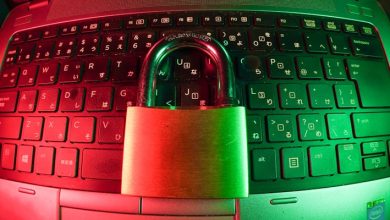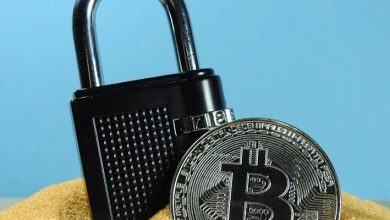Using VPNs and Other Tools to Enhance Crypto Transaction Security

- Understanding the importance of security in crypto transactions
- Exploring the benefits of using VPNs for enhanced security
- How to choose the right VPN for your crypto transactions
- Additional tools and practices to further secure your crypto transactions
- Addressing common security concerns in the world of cryptocurrency
- Tips for maintaining privacy and security while conducting crypto transactions
Understanding the importance of security in crypto transactions
Understanding the importance of security in crypto transactions is crucial for safeguarding your digital assets. In the world of cryptocurrencies, where transactions are irreversible and anonymous, the risk of falling victim to cyber attacks is high. By utilizing tools like VPNs, you can add an extra layer of security to your crypto transactions, making it harder for hackers to intercept sensitive information.
When conducting crypto transactions online, it is essential to protect your personal data and financial information from potential threats. VPNs encrypt your internet connection, making it nearly impossible for cybercriminals to access your data. This encryption ensures that your transactions remain private and secure, reducing the risk of identity theft and fraud.
Additionally, using a VPN can help you bypass geographical restrictions imposed by certain countries on cryptocurrency exchanges. This means that you can access a wider range of trading platforms and take advantage of better opportunities without compromising your security. By masking your IP address, VPNs provide you with anonymity and protect your online activities from prying eyes.
Exploring the benefits of using VPNs for enhanced security
Using a Virtual Private Network (VPN) offers numerous benefits for enhancing security when conducting crypto transactions online. VPNs encrypt your internet connection, making it more difficult for hackers to intercept your data and steal sensitive information. By masking your IP address, VPNs also add an extra layer of anonymity, further protecting your identity and transaction details from prying eyes.
Moreover, VPNs allow you to bypass geolocation restrictions and access crypto exchanges and wallets from anywhere in the world. This can be particularly useful when traveling or accessing your accounts from public Wi-Fi networks, which are often targeted by cybercriminals. With a VPN, you can ensure that your transactions are secure and private, regardless of your location.
Additionally, VPNs can help you avoid potential surveillance by internet service providers, governments, or other third parties. This is especially important for crypto users who value their privacy and want to keep their financial activities confidential. By encrypting your data and routing it through a secure server, VPNs give you peace of mind knowing that your transactions are protected from unauthorized access.
How to choose the right VPN for your crypto transactions
When choosing the right VPN for your crypto transactions, it is essential to consider several key factors to ensure the security and anonymity of your online activities. Here are some important points to keep in mind:
- Encryption Strength: Look for a VPN that offers strong encryption protocols such as AES-256, which provides a high level of security for your data.
- No-Logs Policy: Opt for a VPN provider that has a strict no-logs policy to ensure that your online activities are not being tracked or recorded.
- Server Locations: Choose a VPN with servers in multiple locations around the world to have more options for routing your connection and maintaining anonymity.
- Speed and Reliability: Make sure the VPN you choose offers fast and reliable connections to prevent any disruptions in your crypto transactions.
- Compatibility: Check if the VPN is compatible with the devices and operating systems you use for your crypto transactions to ensure seamless integration.
By considering these factors and doing thorough research on different VPN providers, you can select the right VPN that meets your security and privacy needs for conducting crypto transactions safely and securely.
Additional tools and practices to further secure your crypto transactions
Aside from using VPNs to enhance the security of your crypto transactions, there are additional tools and practices that you can implement to further safeguard your assets. One such tool is a hardware wallet, which is a physical device that stores your private keys offline, making it less susceptible to hacking attempts. By using a hardware wallet, you can add an extra layer of protection to your digital currency holdings.
Another practice to consider is enabling two-factor authentication (2FA) on your cryptocurrency exchange accounts. 2FA requires you to provide two forms of verification before accessing your account, such as a password and a unique code sent to your mobile device. This added security measure can prevent unauthorized access to your funds even if your password is compromised.
Regularly updating your software and applications is also crucial in maintaining the security of your crypto transactions. Developers often release updates to patch vulnerabilities and improve overall security, so staying up to date with the latest versions can help protect your assets from potential threats.
Addressing common security concerns in the world of cryptocurrency
In the world of cryptocurrency, security concerns are a top priority for investors and traders alike. With the rise of cyber attacks and hacking incidents targeting digital assets, it is crucial to address these issues to protect your investments. By using VPNs and other tools, you can enhance the security of your crypto transactions and safeguard your funds from potential threats.
One common security concern in the crypto space is the risk of identity theft and fraud. Hackers can intercept your connection and steal your personal information, including your wallet address and private keys. This can result in unauthorized access to your funds and potential financial losses. By using a VPN, you can encrypt your internet traffic and mask your IP address, making it harder for hackers to track your online activity and steal your sensitive data.
Another security concern is the risk of phishing attacks and malware infections. Cyber criminals often use fake websites and emails to trick users into revealing their login credentials and other sensitive information. By using security tools like anti-virus software, firewalls, and ad blockers, you can reduce the risk of falling victim to these types of attacks. Additionally, always double-check the URL of websites and verify the authenticity of emails before clicking on any links or providing any personal information.
Tips for maintaining privacy and security while conducting crypto transactions
When conducting crypto transactions, it is crucial to prioritize privacy and security to protect your assets from potential threats. Here are some tips to help you maintain a high level of security:
- Utilize a reliable VPN to encrypt your internet connection and mask your IP address. This will help prevent hackers from intercepting your data and tracking your online activities.
- Use a secure and reputable crypto wallet to store your digital assets. Make sure to enable two-factor authentication and regularly update your wallet software to stay protected against vulnerabilities.
- Avoid sharing sensitive information such as your private keys or seed phrases with anyone. Keep this information confidential to prevent unauthorized access to your crypto funds.
- Be cautious when using public Wi-Fi networks, as they are more susceptible to cyber attacks. Consider using a VPN or a mobile data connection when making crypto transactions on the go.
- Regularly monitor your accounts and transactions for any suspicious activity. If you notice any unauthorized transactions or unusual behavior, report it immediately to your wallet provider or exchange platform.
By following these tips and staying vigilant, you can enhance the privacy and security of your crypto transactions and minimize the risk of falling victim to cyber threats.



